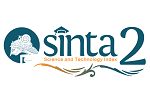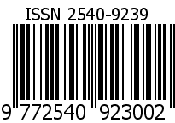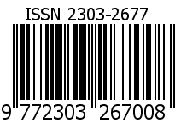The importance of transformative libraries and librarians role
Abstract
Libraries face new challenges amidst social change, digital developments, and increasing disparities in access to information. In this context, there is an urgent need to reposition the role of libraries—not merely as information centers but as agents of empowerment and social transformation. This article aims to examine the significance of implementing the concept of transformative libraries and to formulate the strategic role of librarians in supporting this process. This study employed a qualitative approach using a case study design involving field observations, the CIPP (Context, Input, Process, Product) evaluation model, and a systematic literature review to enrich the analysis. The findings indicated that libraries had great potential to foster local knowledge production, strengthen community literacy movements, and support the democratization of information access. Community participation in managing library services has emerged as a key element in revitalizing libraries as community-based institutions. Challenges such as the digital divide, limited information literacy, and inadequate technological infrastructure emphasized the urgency of redefining the role of libraries. Conversely, librarians were also expected to transform into transformative intellectuals who functioned as facilitators of learning and drivers of social change. This study also developed a model of librarian information behavior that could serve as a reference for professional development in Indonesia. These findings highlight the vital role of transformative libraries as democratic spaces that encourage active community engagement in the lifelong learning process.
Keywords
Full Text:
PDFReferences
Accart, J. (2022). Library transformation strategies. https://www.proquest.com/docview/2727060978/bookReader?accountid=17242&sourcetype=Books
Achebe, N., Nwaiche, C., Ortiz, D. V., Gibbs, C., & Johnson, B. (2023). Constructing college-level Diversity, Equity, and Inclusion (DEI) Minors—Moving from Performative to Transformative DEI. Radical Teacher. 127. 41-50. https://doi.org/10.5195/rt.2023.977
ADiprabowo, H. N., Yusup, P. M., & Anwar, R. K. (2019). Berbagi pengetahuan sebagai strategi pembelajaran karakter di TBM Nusa Bentang Saung Budaya Tatarkarang Cipatujah Tasikmalaya. Jurnal Kajian Informasi & Perpustakaan. 7(2), 145-160. https://doi.org/10.24198/jkip.v7i2.20103
Ajani, YA., Tella, A., Oladokun, B. (2024). Social innovation in Nigerian public libraries: A roadmap for navigating the challenges and opportunities of inclusivity and diversity in the 5IR era. Business Information Review, 1. https://doi.org/10.1177/02663821241289845
Anindyka, A. (2020). Peran pelaku sektor ketiga dalam penyelenggaraan pendidikan di kota Malang. Brawijaya University.
Ashraf, T. (2017). Transforming libraries into centers of community engagement: Towards inclusion, equality & empowerment. https://consensus.app/papers/transforming-libraries-into-centers-of-community-ashraf/e5889a228d765674ad90f8eb247834b0/
Carter, K. M., & Santiago, A. (2023). Exploring sustainability in library support for open pedagogy collaborations. Communications in Information Literacy, 17(1), 238–259. https://doi.org/10.15760/comminfolit.2023.17.1.3
Chapman, T. (2020). Third sector trends in Yorkshire and the Humber 2020: A digest of findings. Community Foundation serving Tyne & Wear and Northumberland.
Conley, S., Ferguson, A., & Kumbier, A. (2019). Supporting students with histories of trauma in libraries: A collaboration of accessibility and library services. Library Trends, 67(3), 526–549. https://doi.org/10.1353/lib.2019.0001
Cox, T. (2023). Creative collaborations for student learning and advocacy. Knowledge Quest, 52(1), 28–33. https://research.ebsco.com/linkprocessor/plink?id=7a4110ae-2b06-3ad9-9144-bb33b9535a0c
Ganggi, R. I. P. (2019). Pustakawan sebagai profesi yang berkembang: Pemaknaan kembali peran pustakawan terhadap implementasi teknologi informasi di perpustakaan. ANUVA, 3(4), 399–409. https://doi.org/10.14710/anuva.3.4.399-409
Hidayat, A. (2016). Rekonstruksi peran pustakawan di era globalisasi. LIBRARIA, 4(2). https://doi.org/http://dx.doi.org/10.21043/libraria.v4i2.1872
Iyer, I., & Ramachandran, S. (2020). Critical text selection for the elementary classroom: A case for strategically using the classroom library to open new spaces for critical literacy engagements. International Journal of Research in Education and Science. 6(2), 284-298. https://doi.org/10.46328/ijres.v0i0.1030
Kammer, J., & Moreland, D. (2020). The experience of school and public library collaboration. Knowledge Quest, 49(2), 52–53. https://research.ebsco.com/linkprocessor/plink?id=12da9862-8d4b-3ee3-8036-e47d4136f861
Khadijah, C. (2018). Transformasi perpustakaan untuk generasi millenial menuju revolusi industri 4.0. IQRA, 12(2), 59-78. https://doi.org/http://dx.doi.org/10.30829/iqra.v12i2.3983
Kine, K., & Davidson, A. (2021). Latvian public libraries as a resource, cooperation partner and initiator for promoting media literacy and civic participation in local communities. Journal of Librarianship and Information Science, 54, 640–651. https://doi.org/10.1177/09610006211036736
Lankes, R. D.; Moralo, Anthony; White, L. (2015). The library innovation toolkit: Ideas, strategies, and programs. ALA Editions.
Magar, P. R. (2024). READ methodology: Community library and resource center a transformative instrument in socio-economic development. Journal of Multidisciplinary Research Advancements. 2(1), 1-7. https://doi.org/10.3126/jomra.v2i1.66629
Mahargono, S. (2018). Membangun kegiatan literasi melalui komunitas: Upaya pustakawan bergerak dengan program Go-Read. 25(3), 39-48. https://doi.org/10.37014/medpus.v25i3.219
Meyers, J. (2017). Dynamic partnerships for sustainable development of public libraries for young people in Zambia. https://consensus.app/papers/dynamic-partnerships-for-sustainable-development-of-meyers/719f35a751f45b4dbce72c1930f64c94/
Mukherji, P. (2018). Marginality, marginalisation and the idea of justice. 13–23. https://doi.org/10.1007/978-981-10-5215-6_2
Nafisah, S. (2022). Urgency of digitizing school libraries in Indonesia’a post-truth era: A cross-perspective review. Jurnal Kajian Informasi & Perpustakaan. 10(2), 157-172. https://doi.org/10.24198/jkip.v10i2.35702
Nasional, P. (2019). Negara dengan jumlah perpustakaan terbanyak di dunia. https://www.facebook.com/ayokeperpusnas/posts/sahabatperpusnastahukah-kamu-saat-ini-ada-164610-perpustakaan-yang-tersebar-di-3/3039897236050643/
Odularo, O. (2024). The pertinence of library and information science in promoting sustainable development. Mousaion: South African Journal of Information Studies. 42(2), 20. https://doi.org/10.25159/2663-659x/13768
Paley, J., Cottrill, J., Errecart, K., White, A., Schaden, C., Schrag, T., Douglas, R., Tahmassebi, B., Crocker, R., & Streatfield, D. (2015). The evolution of global libraries’ performance measurement and impact assessment systems. Performance Measurement & Metrics, 16(2), 132–158. https://doi.org/10.1108/PMM-04-2015-0010
Prihatin, S. D., Khoir, S., Priyanto, I. F., Aliwijaya, A., Wardani, T. R. K., & Dewandaru, D. A. K. (2024a). Community development in rural public libraries: Supporting social inclusion and library transformation. Ibersid, 18(2), 75–86. https://doi.org/10.54886/ibersid.v18i2.5013
Prihatin, S. D., Khoir, S., Priyanto, I. F., Aliwijaya, A., Wardani, T. R. K., & Dewandaru, D. A. K. (2024b). Community development in rural public libraries: Supporting social inclusion and library transformation. Ibersid, 18(2), 75–86. https://doi.org/10.54886/ibersid.v18i2.5013
Rast, M., & Ghorashi, H. (2024). Theorizing as a liberatory practice? The emancipatory promise of knowledge co-creation with (forced) migrants. Social Inclusion. 12, 1-6. https://doi.org/10.17645/si.9636
Rubin, R. E. (2016). Foundation of library and information science (4th ed.). American Library Association.
Schlak, T. (2020). Libraries and leaders as creators of authentic community: Shifting our story from isolation to ownership. Journal of Library Administration, 60(6), 645–652. https://doi.org/10.1080/01930826.2020.1773714
Shah, N. A. et al. (2020). The use of empiricism, rationalism and positivism in library and the use of empiricism, rationalism and positivism in library and information science research. Library Philosophy and Practice (e-Journal). 4448. 1-14. https://digitalcommons.unl.edu/libphilprac/4448
Tania, Y. E. (2023). Transformasi perpustakaan berbasis inklusi sosial pada Dinas Perpustakaan dan Kearsipan Provinsi Kalimantan Barat. JURNAL ILMU PERPUSTAKAAN DAN INFORMASI ISLAM, 2(1), 1-3. http://dx.doi.org/10.31958/jipis.v2i1.8602
Ucik, W. (2023). Membangun komunitas baca dan literasi melalui perpustakaan. Jurnal Literasiana, 1(1), 1-6. http://dx.doi.org/10.21043/libraria.v9i1.17468
Ulum, M. C. (2018). Public service: Tinjauan teoretis dan isu-isu strategis pelayanan publik. UB Press.
Wilson, C., Grizzle, A., Tuazon, R., Akyempong, K., & Cheung, C.-K. (2011). Curriculum for teachers curriculum for teachers. In Policy Studies. UNESCO.
Wilson, D. (2020). Moving toward democratic-transformational leadership in academic libraries. Library Management. 41(8), 731-744. https://doi.org/10.1108/LM-03-2020-0044
Wiranda, M.A; Agustini, N.; Anwar, R. K. (2023). Strategi transformasi perpustakaan berbasis inklusi sosial (Studi Kasus di Dinas Perpustakaan dan Arsip Daerah Kabupaten Siak). LIBRIA, 14(2), 98-121. http://dx.doi.org/10.22373/16807
DOI: https://doi.org/10.24198/jkip.v13i1.52373
Refbacks
- There are currently no refbacks.
Copyright (c) 2025 Author(s)

This work is licensed under a Creative Commons Attribution-ShareAlike 4.0 International License.
Jurnal Kajian Informasi & Perpustakaan Indexed by:
Jurnal Kajian Informasi & Perpustakaan
Program Studi Perpustakaan dan Sains Informasi d.h. Program Studi Ilmu Perpustakaan
Fakultas Ilmu Komunikasi, Universitas Padjadjaran
Jl. Raya Bandung-Sumedang Km. 21 Jatinangor, Sumedang, Indonesia 45363
WA: +62 877-1860-4022 (Risa Nurisani)
Telepon: +62227796954
Faksimile: +62227794122
email: jkip.fikom@unpad.ac.id
Jurnal Kajian Informasi & Perpustakaan is licensed under a Creative Commons Attribution-ShareAlike 4.0 International License
Jurnal Kajian Informasi & Perpustakaan supervised by:












2.png)
.png)



